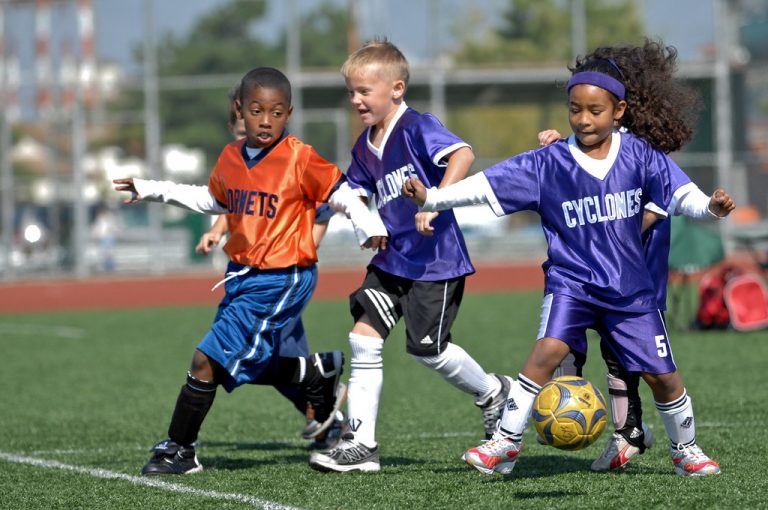
Youth sports participation offers a wide array of physical, psychological, social, and academic benefits. Engaging in sports not only promotes physical fitness but also plays a crucial role in improving mental health and academic performance among young individuals. This report synthesizes findings from various studies highlighting these benefits.
Physical Health Enhancements
Participation in youth sports is notably associated with improved physical health outcomes. Regular engagement in physical activities, including organized sports, significantly contributes to better cardiovascular fitness, improved muscular strength, and healthier body composition. Studies indicate that youth involved in sports activities typically have lower rates of obesity and related health issues, such as diabetes and heart disease[5][6]. This is particularly important given that childhood obesity rates have been on the rise, which can lead to long-term health consequences[4].
Additionally, sports participation aligns with general health guidelines advocating that children and adolescents should engage in at least 60 minutes of moderate to vigorous physical activity daily[4][7]. This active lifestyle fosters not just fitness but also helps instill lifelong habits of physical activity, which are essential for maintaining health into adulthood[5].
Psychological and Emotional Well-Being
The psychological benefits of participating in youth sports are substantial. Regular physical activity has been linked to lower levels of anxiety and depression, contributing to a more stable emotional state in adolescents[1][3]. A comprehensive review found that participating in sports significantly enhances self-esteem and body image, factors critical for adolescents navigating the complexities of identity and social acceptance[5][3].
Furthermore, sports participation can lead to reduced stress levels. Engaging in physical activity stimulates the release of endorphins, often referred to as 'feel-good' hormones, which enhance mood and overall feelings of happiness[5][6]. It has also been suggested that sports participation serves as a protective factor against suicidal thoughts and tendencies among youth, offering social support through team dynamics and camaraderie[4][5].
Social Development and Sense of Belonging
Participation in sports also fosters social skills and a sense of belonging. It encourages teamwork and interpersonal communication, essential skills for personal and professional success later in life[4][6]. Research indicates that youth engaged in organized sports report higher levels of social support and connection to their peers, which can promote resilience and well-being[2][6][7].
A sense of belonging cultivated through sports participation helps mitigate feelings of isolation, particularly during pivotal developmental stages such as adolescence. Evidence shows that students who participate in sports often feel more connected to their school communities, influencing their overall happiness and motivation toward academic achievement[7].
Academic Performance and Life Skills
Numerous studies have established a positive correlation between sports participation and academic performance. Regular physical activity enhances cognitive functions, improving attention, memory, and processing speed, which are crucial for academic success[2][6]. Although some research presents a mixed picture, many studies highlight that students engaged in sports tend to achieve better grades and exhibit higher levels of engagement in classroom activities[1][6].
Participation in sports can instill important life skills, such as discipline, leadership, and time management. Students involved in sports learn how to set goals, manage schedules, and work toward achieving them, which are transferable skills applicable in academic and personal contexts[5][7].
Equally important is the role of non-cognitive skills developed through sports, such as mental toughness and self-efficacy. These skills help students cope with challenges and persist in the face of difficulties, contributing positively to their academic journey[7]. The mediating effects of mental toughness and self-efficacy signify that students who are more resilient and confident in their abilities are likely to pursue their academic goals more effectively[2][1].
Gender Considerations
Despite the numerous benefits of sports participation, it is crucial to recognize that girls often face barriers that lead to lower participation rates compared to boys. Research shows that girls frequently drop out of sports during their adolescence, which is concerning given the mental health benefits associated with participation[4][5][7]. Initiatives aimed at promoting sports among young girls are essential to ensure equitable access and encourage sustained participation, thereby aiding in their emotional and social development[3][1].
In conclusion, the various benefits of youth sports participation extend far beyond physical fitness. They encompass improvements in mental health, social skills, and academic performance, all while promoting a healthier lifestyle. Schools and communities must continue to support and expand sports programs, especially for girls, to ensure that all young people can experience these significant advantages. Encouraging regular participation in sports not only contributes to healthier lives but also fosters a generation equipped with the necessary skill sets for both personal and academic success.
Get more accurate answers with Super Pandi, upload files, personalized discovery feed, save searches and contribute to the PandiPedia.
Let's look at alternatives:
- Modify the query.
- Start a new thread.
- Remove sources (if manually added).